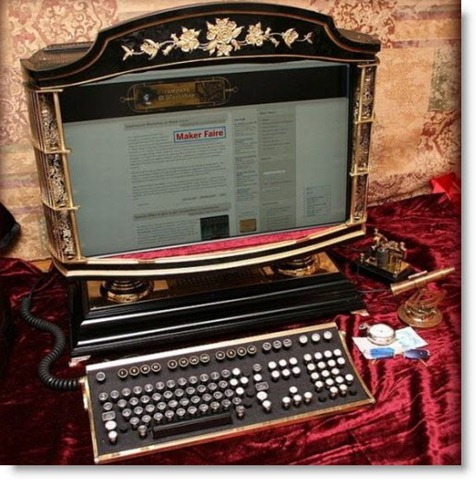Small businesses bought a lot of computers in 2004 and 2005. Windows XP had been on the market for three years and early compatibility problems had been resolved. Small businesses cleaned out the aging Windows 98 80386 computers to take advantage of the new OS and new programs.
This is the year to repeat the process. Windows 7 is a mature version of Windows Vista – for all intents and purposes, the current version of Windows has been on the market for three years and early compatibility problems have been resolved. Businesses should be clearing out the old Windows XP computers to take advantage of the new OS and new programs.
Those Dell Dimension 2400 and Dimension 3000 boxes under your desk are five or six years old. (So are the old Compaqs and eMachines, the old homebuilts, and anything beige.) They have the accumulated detritus of years of security updates, service packs, program upgrades, forgotten and obsolete utilities and media players, and oh so much more. They are slowing down and fading away. Prepare to say goodbye. Begin to empty out your belongings and get ready to drive them to the retirement home. Prepare your business technology budget for their replacements.
In the last month, out of nowhere, I started getting calls from a number of clients complaining that something had tipped the old computers over the edge, making them so slow as to be unusable. What I’ve found is that it’s not any single thing – there’s no update to uninstall that will make everything okay. It’s the accumulated weight of the years of changes since those computers were assembled.
If you have a five or six year old computer in your business, plan to replace it soon. The hard drives will fail. Programs will crash. New programs won’t run. Processing will slow to a crawl. Later this year Microsoft will release the first big wave of programs that will not run on Windows XP, accelerating its inevitable decline. It is easier and cheaper to replace a computer on your own schedule than on the computer’s schedule after it fails.
In the meantime, there are two things you should do if you’re not going to replace those computers right away.
- Check the space on the hard drive! When you bought those machines, we were impressed by the spacious 30Gb hard drives. I’ve had several old computers turn up in the last few weeks with hard drives that were completely full to overflowing, causing the computers to start crashing and freezing.
- Check the memory! (Click on Start / Control Panel / System.) If the computer has 512Mb of memory, it has likely slowed down so much that it can barely be used. You can extend its life by adding memory, usually another 1Gb for fifty or sixty dollars. I’m not sure that’s a great investment (I’d rather see you apply the money to a new computer) but it will buy you some time.
If disk space is low, here is a list of my Windows XP cleanup techniques. Please be cautious – some of these tricks should only be done by trained professionals on a closed track.
- Run the disk cleanup wizard in Start / All Programs / Accessories / System Tools
- Delete temporary Internet files from Internet Explorer (Safety / Delete Browsing History)
- Delete obsolete or unnecessary user profiles (if you don’t know where to find them, you shouldn’t be there)
- Delete the years of accumulated backup folders from security patches and service packs. You will likely find dozens of folders in C:Windows with names starting with dollar signs, holding files backed up when service packs and security updates were installed. (You won’t see them until you turn on hidden files in Tools / Folder Options / View.) On the one hand, if you delete them, there are some scenarios where the computer will fall over; on the other hand, the reason you’re looking is because the computer is already falling over, right? When necessary, I’ve deleted the $ folders with dates from the beginning through, say 2009, and so far haven’t had any side effects. Your mileage may vary. Theoretically the $hf_mig$ folder is special and shouldn’t be removed, although it doesn’t seem to make a dying system worse if it’s also removed to gain space.
- Empty out the other Temp folders. Even after running the disk cleanup wizard I still find folders full of crud in C:WindowsTemp and C:Documents and Settings<username>Local SettingsTemp. You might run into permission issues if you go digging into other user profiles, and some files won’t let themselves be deleted, but it can help.
- Set the Recycle Bin to use less disk space. I turn it down from the default 10% to something like 3%.
- Uninstall unnecessary programs. I put this last because it’s usually ineffective at recovering disk space. Most programs on Windows XP machines don’t take much space. You can uninstall to your heart’s content and only recover a gigabyte or two.
Hopefully you understand my point. The old computers are dying. There’s nothing to do that will prolong their life. I have nothing left in my bag of tricks to make them work better. It’s over. Get ready to replace them.



Our law office experience is that Windows 7 and Word 2010 are incompatible in some subtle way that is driving us mad. Not ready for prime time, as usual.
Sigh. I just KNEW you were going to say that the EXCRUCIATINGLY slow response I now have on my Dell Dimension 3000 running XP is ultimately fatal…